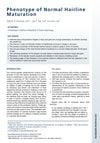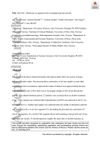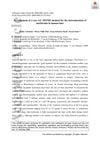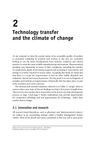 April 2018 in “Journal of Investigative Dermatology”
April 2018 in “Journal of Investigative Dermatology” Fetuin A may increase collagen production and promote scarring.
255 citations,
September 2016 in “Frontiers in plant science” Reactive oxygen species (ROS) help control plant growth and development.
 January 1990 in “Springer eBooks”
January 1990 in “Springer eBooks” Some chemicals can permanently or temporarily remove color from skin and hair, which can be distressing and is not well-regulated in cosmetics.
 19 citations,
August 2013 in “Facial Plastic Surgery Clinics of North America”
19 citations,
August 2013 in “Facial Plastic Surgery Clinics of North America” Children's hairlines change shape as they grow, with women often developing a widow's peak and men's hairlines becoming more convex and possibly balding at the temples, influenced by genetics and hormones.
 8 citations,
August 2018 in “Drug testing and analysis”
8 citations,
August 2018 in “Drug testing and analysis” EtG levels in hair decrease significantly after one month of alcohol abstinence.
 19 citations,
December 2015 in “Journal of Materials Chemistry B”
19 citations,
December 2015 in “Journal of Materials Chemistry B” Scientists have created a method to deliver specific cells that can regenerate hair follicles, potentially offering a new treatment for hair loss.
 14 citations,
June 2020 in “Drug Testing and Analysis”
14 citations,
June 2020 in “Drug Testing and Analysis” A new method was created to measure metformin in hair, showing potential for monitoring treatment and medical investigations.
 10 citations,
December 2021 in “Frontiers in cell and developmental biology”
10 citations,
December 2021 in “Frontiers in cell and developmental biology” The research identified genes that explain why some sheep have curly wool and others have straight wool.

Forensic hair analysis for drugs is now more reliable and accurate.
 5 citations,
May 2020 in “Pharmaceutical Research”
5 citations,
May 2020 in “Pharmaceutical Research” Heat and chemicals improve finasteride delivery to scalp and hair follicles, potentially enhancing treatment for hair loss.
 28 citations,
March 2014 in “International Journal of Nanomedicine”
28 citations,
March 2014 in “International Journal of Nanomedicine” New lipid nanoparticles show promise for delivering hair loss treatments but need improvement for better skin penetration.
 6 citations,
April 2022 in “Journal of diabetes research”
6 citations,
April 2022 in “Journal of diabetes research” Type 2 diabetes slows down skin and hair renewal by blocking important stem cell activation in mice.
 3 citations,
September 2022 in “Archives of dermatological research”
3 citations,
September 2022 in “Archives of dermatological research” The fractional carbon dioxide laser is a safe and effective treatment for alopecia areata and works better than betamethasone valerate cream alone.
 October 2024 in “BMC Genomics”
October 2024 in “BMC Genomics” Understanding hair follicle development can help improve cashmere quality.
May 2023 in “Experimental Dermatology” Male pattern hair loss may be linked to the developmental origins of hair follicles.
 January 2024 in “Materials chemistry frontiers (Online)”
January 2024 in “Materials chemistry frontiers (Online)” New near-infrared OLED emitters are more efficient, especially platinum(II) complexes, and have promising applications like hair growth treatment.
 May 2022 in “bioRxiv (Cold Spring Harbor Laboratory)”
May 2022 in “bioRxiv (Cold Spring Harbor Laboratory)” Primary cilia affect the size and oil production of eye glands but not the oil's makeup.
126 citations,
August 2018 in “Molecular Systems Biology” Fibroblast state switching is crucial for skin healing and development.
 1 citations,
May 2023 in “Journal of molecular evolution”
1 citations,
May 2023 in “Journal of molecular evolution” Pangolins have lost some skin-related genes, but kept others, leading to their unique scales and skin features.
 1 citations,
December 2022 in “bioRxiv (Cold Spring Harbor Laboratory)”
1 citations,
December 2022 in “bioRxiv (Cold Spring Harbor Laboratory)” Pangolins have lost some skin-related genes, but kept others, showing complex skin evolution.

The document concludes that a Quality Management System is crucial for maintaining product quality through innovation and proper technology transfer in the pharmaceutical industry.
 2 citations,
February 2024 in “Nature cell biology”
2 citations,
February 2024 in “Nature cell biology” Mechanical forces are crucial for shaping cells and forming tissues during development.
 November 2014 in “Journal of Cell Biology”
November 2014 in “Journal of Cell Biology” Valentina Greco's research shows that the environment around hair follicle stem cells is more crucial for regeneration than the stem cells themselves.
 61 citations,
December 2016 in “The EMBO Journal”
61 citations,
December 2016 in “The EMBO Journal” The study showed that hair follicle stem cells can maintain and organize themselves in a lab setting, keeping their ability to renew and form hair and skin.
 December 2024 in “Stem Cell Research & Therapy”
December 2024 in “Stem Cell Research & Therapy” ZO-1 helps hair follicle stem cells renew better by changing their structure.
4 citations,
June 2023 in “Journal of developmental biology” The skin systems of jawed vertebrates evolved diverse appendages like hair and scales from a common structure over 420 million years ago.
 29 citations,
August 2008 in “Current Opinion in Pediatrics”
29 citations,
August 2008 in “Current Opinion in Pediatrics” Hair loss in teenagers is hard to treat and lacks a cure, with some treatments available depending on the type of hair loss.
 92 citations,
August 2017 in “Proceedings of the National Academy of Sciences of the United States of America”
92 citations,
August 2017 in “Proceedings of the National Academy of Sciences of the United States of America” Newborn mouse skin cells can grow hair and this process can be recreated in adult cells to potentially help with hair loss.
 47 citations,
June 2019 in “Nature Communications”
47 citations,
June 2019 in “Nature Communications” Noncoding dsRNA boosts hair growth by activating TLR3 and increasing retinoic acid.
 11 citations,
June 2017 in “Journal of cell science”
11 citations,
June 2017 in “Journal of cell science” AGD1's PH domain is essential for its role in root hair growth and polarity.


























